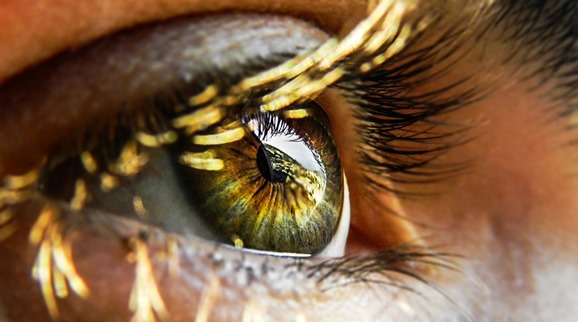The Genetics of Keratoconus

Crosslinking Improves Quality of Life for Individuals with Progressive KC
March 22, 2023
May 2023 Update Newsletter
June 1, 2023Kara Williams MS, LGC is a licensed genetic counselor. Unlike most genetic counselors who work with systemic diseases like cancer, Williams is one of only a handful of counselors focused on ophthalmology and inherited eye diseases. With professional experience at Duke Eye Center and more recently at The Ohio State University’s Wexner Medical Center, Williams works alongside eyecare professionals to help patients and their families assess the genetic risks of certain eye conditions.
Her particular area of concentration is inherited cornea diseases and keratoconus. She noted that most ophthalmic genetic counselors focus on rare retinal diseases. These are often catastrophic eye conditions where a single inherited gene can cause total blindness.
conditions where a single inherited gene can cause total blindness.
What information does Williams offer the families she counsels?
“First, I tell them there is not a single gene that causes keratoconus, except in a few rare cases. Some genes or variants in genes have been found to be associated with keratoconus but there is still much work to be done and ongoing research continues to identify more genes. So, there is no genetic test that can be performed today that can definitely diagnose the disease or tell an individual there is a 100% chance they will or will not develop keratoconus.”
She offers the following to families seeking answers. “People are born with genetic differences as genetic counselors like to call them. There is nothing a person did to get these genetic differences; people are born with the same set of genes, but we all have differences in these genes that makes each of us unique. Some of these differences aren’t harmful and may not even be beneficial while other differences put us at risk for things such as keratoconus.
Interest in learning more about the genetic basis for keratoconus continues to grow, and Williams notes there are several academic centers as well as public companies like Avellino Labs collecting and analyzing genetic samples (often a cheek swab, but sometimes a blood sample) in order to identify gene variants responsible for keratoconus.
Genetic testing for keratoconus offers a polygenic risk score, which tests for several known gene abnormalities associated with the disease and determines how many of those variants are present. The polygenic risk score predicts likelihood. One weakness with the present state of testing is that while you can be told if you are at increased risk because of the number or type of gene differences you carry, that increased risk could mean that you are twice as likely as someone else to develop keratoconus, or it may mean that you are 100 times more likely. Quantifying the risk is difficult to do and is still being studied.
The environmental impact of keratoconus is another confounding factor. Eyecare professionals agree that keratoconus is likely the combination of environment (behaviors like eye rubbing, living in a dry, windy climate, or poorly fitting contact lenses that irritate the cornea) and a genetic predisposition for a weak cornea. Williams notes that the percentage of each needed to trigger keratoconus is unknown. “It is possible that someone with a small genetic risk can have multiple environmental factors that pushes them to develop keratoconus. We know there are others who have very few environmental influences, but still develop the disease. It is the chicken and the egg with keratoconus: what causes the disease in certain people and not in others?”
When Williams is providing counseling for individuals or families, she learns what benefit they are seeking. “I ask families to think about what genetic testing will offer them. If you are told you have a high-risk score for keratoconus, will you be relieved to have a likely diagnosis, or will you feel guilty if you have a low-risk score while other family members have a high-risk score? Many families tell me they are seeking genetic testing for peace of mind, but that does not always occur.
She added, “Genetic test results for inherited eye disease are not always conclusive. In the best of cases, they may influence a decision on treatment choice, or motivate other family members to screen for the condition. The undeniable benefit of genetic testing for keratoconus is, the more samples that are studied, the more our understanding of the disease increases, and this builds evidence that will benefit future patients.”
———
Genetic counselors collect detailed family medical histories and assess the risk of certain inherited diseases. Licensing varies from state to state. To learn more, visit the National Society of Genetic Counselors (nsgc.org)



